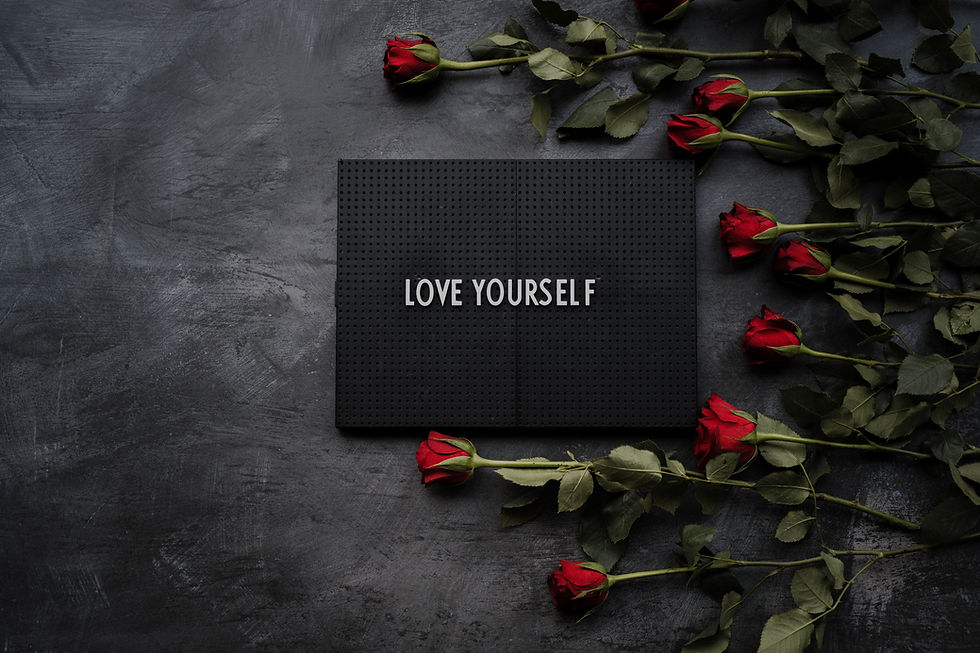Self-Care: How to Create the Self Care Plan that Works for You
- Hannah Whitley, LCSW
- Jun 26, 2024
- 3 min read

We have probably all heard about self care at some point, and probably know that it is important and something we want to do more of. But what really is self care? And how do we know if we’re getting enough of it? In a society that’s driven by productivity, the need to pause and take time for self care is especially important and especially difficult. Studies even show that 1 in 4 Americans report feeling guilty for pampering themselves. But without enough, or the right kind of self care, we can find ourselves feeling stressed, burnt out, and can even become depressed or anxious.
The Different Kinds of Self Care
What comes to mind when you think of self care? Maybe it is a nice bubble bath and your favorite book, or a midday nap on the weekend. These certainly are types of self care, but there may be more than you think. Self care can be broken down into 6 categories 1) Physical, 2) Psychological, 3) Emotional, 4) Spiritual, 5) Relationship and 6) Professional. Physical self care pertains to our physical sense of safety and health , such as having adequate housing and food as well as our health, such as medical care and exercise. Physical self care also encompasses anything that can be soothing or nurturing to the body, such as a massage, or acupuncture. Psychological self care includes things like going to therapy, practicing self reflection, or engaging in hobbies that are nurturing to the mind. Emotional self care includes things like affirmations, self reflection, or giving yourself space to feel your emotions. Spiritual self care can include things like belonging to a spiritual community, meditations, or participating in the arts or volunteer work. Relationship self-care includes things such as scheduling regular date nights with your partner, staying in touch with long distance friends or relatives, or cuddling with your pets. Finally professional self care can include things like taking a lunch break, getting additional training, using sick days, and setting boundaries with your hours. These categories are not all encompassing, but are simply a guide that can help you to assess what areas of your life you may need to engage in more self care.

What Self Care Is and Is Not
Self care is not a rigid plan, and is not meant to feel like an additional burden. Self-care is not something to beat yourself up over, or to set unrealistic standards for. The point of self care is to nurture the different aspects of yourself, to have better balance in your life, feel recharged, and prevent burnout or mental health disorders. Self care shouldn’t feel like something you dread. Ideally, self-care can be fluid, and attuned to what we are needing at the moment. If getting a weekly massage is creating a financial burden, or your hobby that you’ve chosen to unwind feels more like a chore, it may be time to re-evaluate your self-care plan. While having a balance of all 6 categories of self care may sound ideal, it isn’t always realistic. If work is creating a great deal of stress, it may be best to boost up our professional self care, or if our mental health is struggling we may need to focus more on our emotional and psychological self care.
Making a Self Care Plan
Thinking about all of these 6 categories of self care can feel overwhelming, especially if life is already feeling busy and stressful. The first step to making a plan can be figuring out where your self care is lacking. This self care assessment allows you to rate how well you think you’re doing in each of the 6 areas. The next step is to triage. If you find you’re struggling in multiple areas of self care, take some time to reflect on which feels like the biggest priority right now. Are you struggling with your relationships? Feeling burnt out at work? Becoming increasingly anxious? Suffering with sore muscles or other physical ailments? Feeling like you have no time for yourself? Asking yourself these questions can help you identify which area of self care may need to prioritize right now. Once you’ve gotten into a good routine with one area of self care, or stress in one area of your life begins to feel more manageable, you can add in other types of self care to your self care plan. Still feeling lost? We are here to help! Here at Mind and Body Therapeutic connections, we offer a variety of services to help you engage in the self care you need. Our services include fitness classes, personal training, yoga, meditation, Reiki, acupuncture, nutrition counseling, massage therapy, and individual and couples therapy. Not sure what would be helpful? Call us and we can set up a clinical consultation to help you determine which services you need to get on track with your self-care.
